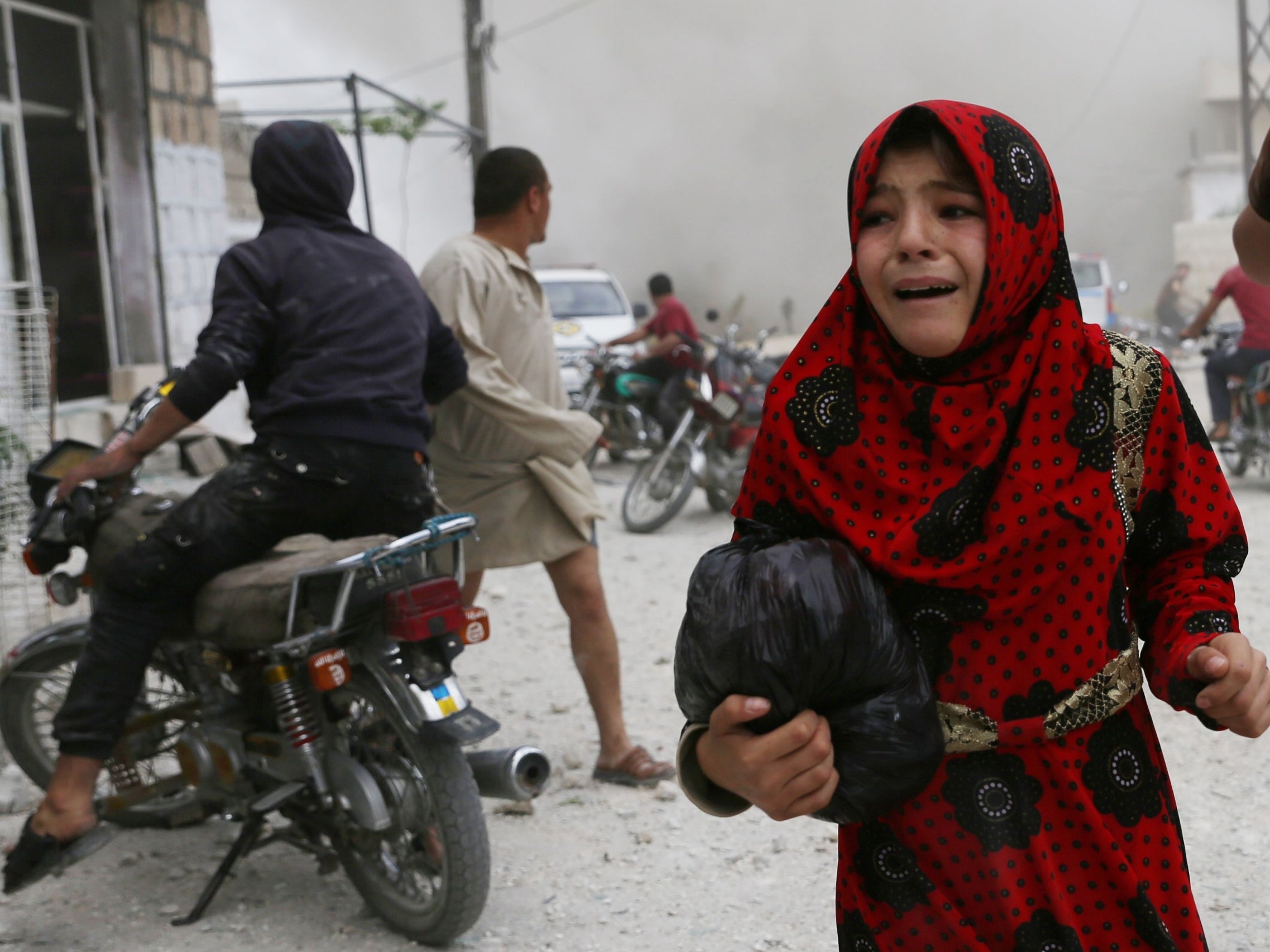At least 130 children among dead after Russian-led attacks in Syria, rights group claims
‘To have these medical facilities bombed and put out of service in less than two months is no accident’

At least 130 children were among the 544 people killed in a Russian-led assault on the last rebel-held area of northwestern Syria over the last two months, according to an independent monitoring group.
Aided by Russian air power, the Syrian army launched an offensive on the rebel-held Idlib province and the nearby provinces on 26 April – and fighting has continued since then.
The Syrian Network for Human Rights (SNHR), a London-based group with a number of monitors on the ground, said the area had been hit with cluster bombs and incendiary weapons.
More than 2,000 people had been injured, the organisation that briefs United Nations (UN) agencies added.
“The Russian military and its Syrian ally are deliberately targeting civilians with a record number of medical facilities bombed,” the group’s chairman, Fadel Abdul Ghany, said.
Aid groups have also criticised the offensive. An aerial strike on Kafr Nabl hospital made it the 30th to be bombed during the campaign. They said thousands would be left without access to medical access as a result.
“To have these medical facilities bombed and put out of service in less than two months is no accident,” Dr Khaula Sawah, vice president of the US-based Union of Medical Care and Relief Organisations, which provides aid in the northwest, said in a statement. “Let’s call this by what it is, a war crime.”
Russia and the Syrian army deny indiscriminately targeting civilian areas. The have claimed the campaign is fending off against al-Qaeda militants who allegedly hit populated, government-held areas. They also accuse rebels of wrecking a ceasefire deal agreed last year between Turkey and Russia.
But residents and rescuers in opposition areas believe the attacks are meant to paralyse everyday life and say the two-month-old campaign has left dozens of villages and towns in ruins.
At least 300,000 people have been forced to leave their homes for the safety of areas closer to the border with Turkey, according to the UN.
Last month, US-based Human Rights Watch said the Russian-Syrian joint military operation had used cluster munitions and incendiary weapons in the attacks.
The heads of 11 major global humanitarian organisations warned at the end of last month that Idlib stood on the brink of “a humanitarian nightmare unlike anything we have seen this century”, with 3 million civilian lives at risk, including one million children.

“Too many have died already” and “even wars have laws” they declared.
Mark Lowcock, UN relief chief and humanitarian coordinator, also said at the time that the organisation’s “worst fears are materialising.”
He added: “Yet again innocent civilians are paying the price for the political failure to stop the violence and do what is demanded under international law – to protect all civilians.”
Join our commenting forum
Join thought-provoking conversations, follow other Independent readers and see their replies
Comments